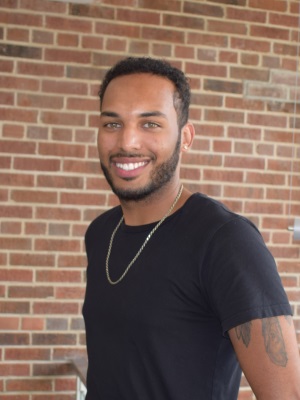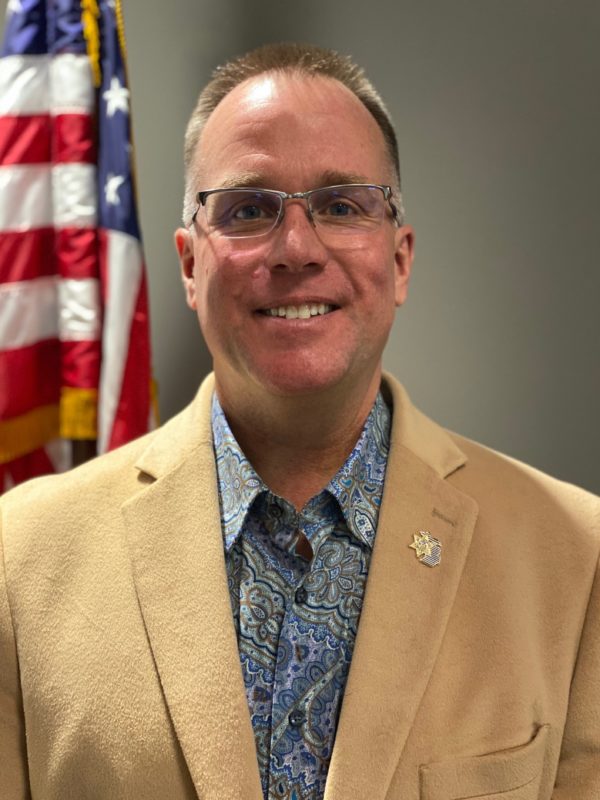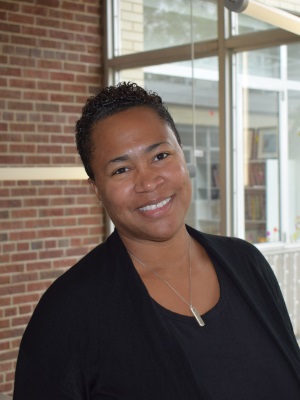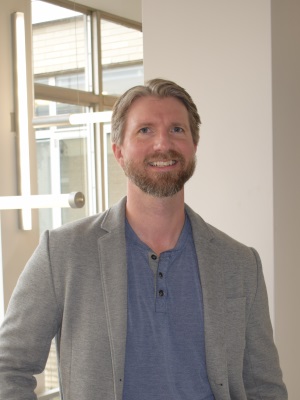Key Strategies for COVID-19 Mitigation in Jail Settings
Friday, December 11, 2020
The December COVID-19 Mitigation Strategies in Jail Settings Community of Practice webinar was the first of a monthly series that featured facilitated discussions with partners from across the country. During the event, key COVID-19 mitigation strategies in jail settings with key personnel were discussed, including testing, contact tracing, data/information sharing, and discharge planning.
Back to the Community of Practice
Agenda:
- Welcome and Opening Remarks
Speakers
 Sheryl Kubiak, Ph.D., M.S.W.
Sheryl Kubiak, Ph.D., M.S.W.Dean and Professor in the Wayne State University School of Social Work
Sheryl Kubiak, Ph.D. is the Dean of and a Professor in the Wayne State University School of Social Work and Founding Director of the Center for Behavioral Health and Justice. Prior to her current position, Dean Kubiak was a professor in the College of Social Science, Department of Social Work, at Michigan State University and a research associate in the Institute for Research on Women and Gender and the Substance Abuse Research Center both at University of Michigan. Dean Kubiak obtained her graduate degrees from the University of Michigan (MSW, 1988; PhD in Psychology, 2002) and a BA in Social Work with a minor in Business Administration from Madonna University (1987).
Dean Kubiak's interest in the intersections between criminal/legal systems and behavioral health began 30 years ago when she developed and administered a long-term residential re-entry program in Detroit for pregnant women addicted to crack cocaine. Since then, Dean Kubiak has received funding from national (NIMH, NSF, NIDA) and state (MDOC, MDHHS) government, as well as foundations (i.e., Robert Wood Johnson Foundation, Skillman, Flinn) to research and evaluate projects such as substance abuse treatment within prisons, mental health courts, and integrated substance abuse and mental health treatment for those involved in the legal system. Professional contributions include involvement as a member of peer review panels for National Institute of Mental Health and Fulbright Awards. Currently, she is the PI on a cross-site evaluation of pilot diversion programs statewide (Michigan Mental Health Diversion Council) and a prison reentry project for those with opioid addictions. Dean Kubiak has served as a gubernatorial appointee to the Michigan Joint Task Force on Jail and Pretrial Incarceration and the state's Criminal Justice Policy Commission.
 Tyler Logan, M.A.
Tyler Logan, M.A.Project Coordinator, Center for Behavioral Health and Justice
Tyler is a strong advocate for health equity and social justice. Much of his research work and interests have been embedded in identifying how historical, systemic, and environmental factors affect the health and wellbeing of marginalized communities. He is also a member of the Michigan Association for Evaluation, the American Public Health Association and the National Association for Health Service Executives. Prior to coming to the CBHJ, Tyler was involved in multiple evaluation projects throughout Michigan, and beyond, and brings valuable equity-focused evaluation, facilitation, community engagement, and collaboration practices to the team.
Welcome message
 Matthew M. Saxton, Sheriff (Ret.)
Matthew M. Saxton, Sheriff (Ret.)Executive Director/C.E.O., Michigan Sheriffs' Association
Matthew Saxton is the Executive Director and C.E.O. of the Michigan Sheriff's Association, where he works with the 83 Sheriffs from across the state and over 21,000 citizen members.
Prior to joining the MSA, Saxton worked for the Calhoun County Sheriff's Office since 1994, holding various positions within the law enforcement and corrections divisions. He was elected sheriff in 2013. - Wayne County's Story
Wayne County Speakers discuss how the COVID-19 pandemic impacted the operations of the Wayne County Jail, the County's response, and the development of the mitigation strategies toolkit.
Speakers
 Robert Dunlap, M.L.S., M.S.
Robert Dunlap, M.L.S., M.S.Chief of Jails and Court Operations, Wayne County Sheriff's Office
Robert Dunlap is the Chief of Jails and Court Operations in Wayne County Jail. With over a decade of experience working in Wayne County's criminal justice system, Chief Dunlap is responsible for security within the Wayne County jail system, as well as, management, supervision and administration of of the department's resources- This includes sworn officers and civilian employees. Duties included oversight and management of the day-to-day operations of the Operations Portfolio; implementation of practical decision-making policies and guidelines; evaluations; investigative and specialized commands and the development and implementation of strategies to improve performance and reduce crime across the county.
 Jennifer Caruso, M.S.N.M
Jennifer Caruso, M.S.N.MDivision Director, Wayne County Department of Health, Human and Veterans Services
Jennifer Caruso is currently a Division Director for Wayne County Dept of Health, Human & Veterans Services. With over a decade of experience in government and non-profit industries, Caruso is fiercely committed to improving health outcomes, advocating for vulnerable populations, and focused on facilitating change by empowering others. Caruso is a firm believer in utilizing a participatory leadership approach and has expertise in government sector operations, healthcare administration, HIV/STI prevention and care, violence prevention, and other related content in the public sector.
 Kattie Snow
Kattie SnowContract Service Management for Jail Health, Wayne County Department of Health, Human and Veteran Services
- Mitigation Strategies:
Testing, Contact Tracing, Data/Information Sharing, & Discharge PlanningLearn about the four mitigation strategies in the toolkit and how they were developed.
Implementation of routine diagnostic testing plans.
Collaboration with the health department to collect information and follow-up.
Developing data collection, management, and sharing protocols with key partners.
Assuring those with COVID-19 are provided information upon release.
Speakers
 Bianca Burch, M.A., M.S.W.
Bianca Burch, M.A., M.S.W.Project Coordinator, Center for Behavioral Health and Justice
Bianca joined the CBHJ team September 2019 as a Project Coordinator. Before coming to the CBHJ, Burch was a project coordinator at The University of Michigan working on studies that focused on substance use, depression, and suicide prevention among adolescents and young adults in the Flint area. She was also a research associate at the Michigan Public Health Institute. During that time she provided technical assistance and coordinated data collection and entry, ongoing communication and collaboration with community partners throughout the state of Michigan.
 Tyler Logan, M.A.
Tyler Logan, M.A.Project Coordinator, Center for Behavioral Health and Justice
Tyler is a strong advocate for health equity and social justice. Much of his research work and interests have been embedded in identifying how historical, systemic, and environmental factors affect the health and wellbeing of marginalized communities. He is also a member of the Michigan Association for Evaluation, the American Public Health Association and the National Association for Health Service Executives. Prior to coming to the CBHJ, Tyler was involved in multiple evaluation projects throughout Michigan, and beyond, and brings valuable equity-focused evaluation, facilitation, community engagement, and collaboration practices to the team.
- Panel Discussion
Panelists
 Heather Walter-McCabe, J.D., M.S.W.
Heather Walter-McCabe, J.D., M.S.W.Associate Professor of Law and Social Work
Professor Heather Walter-McCabe holds a joint appointment at Wayne State University Law School and Wayne State University School of Social Work.
Walter-McCabe began her career as a social worker at a high acuity pediatric tertiary care hospital in the Midwest working with families whose children had significant medical needs. After law school, she directed a public health research program examining the impact of firearm violence in Indiana. She later served as the executive director of the William H. and Christine H. Hall Center for Law and Health at Indiana University Robert H. McKinney School of Law before joining the faculty at the Indiana University School of Social Work.
Her research is done at the intersection of law, social work, and public health. Her research translates complex legal issues and research findings across multiple professions to make the information accessible for use by practitioners and advocates in improving population health. As a part of this work, Walter-McCabe was a Robert Wood Johnson Foundation Public Health Law Teaching Fellow from 2014-16.
Most recently she is leading research examining law and policy impacting LGBTQ health equity and well-being. She has published in traditional peer-reviewed academic journals and law reviews and has also been sought by media to explain core issues of public health policy. Walter-McCabe serves on the Executive Board of the American Public Health Association and is a contributing editor to the journal Social Work. Lance Gable, J.D., M.P.H.
Lance Gable, J.D., M.P.H.Associate Professor of Law and Faculty Director
Lance Gable is an associate professor of law at Wayne State University Law School. Gable, an internationally known expert on public health law and bioethics, served as interim dean of Wayne Law from September 2016 to August 2017. A member of the Law School faculty since 2006, he also served as associate dean from June 2014 until his appointment as interim dean in 2016. Prior to that, he was interim associate dean since June 2013. He teaches courses on Public Health Law, Bioethics and the Law, Torts and other health law subjects. His research addresses the overlap among law, policy, ethics, health and science. He has published journal articles on a diverse array of topics, including public health law, ethics and policy; international human rights; bioterrorism and emergency preparedness; mental health; research ethics; and information privacy. He also is co-editor and co-author respectively of two books: Research with High Risk Populations: Balancing Science, Ethics and the Law and Legal Aspects of HIV/AIDS: A Guide for Policy and Law Reform. Gable has helped the Michigan Department of Health and Human Services develop ethical guidelines for the allocation of scarce medical resources during public health emergencies. He also has assisted with the development of course materials for the World Health Organization Diploma in International Human Rights and Mental Health, and has worked as a human rights consultant for the Pan American Health Organization. He has served as co-chair of Wayne State University's Stem Cell Research Oversight Committee, co-chair of the university's Clinical and Transnational Research Ethics Workgroup. He is the recipient of the 2010 WSU Academy of Scholars Junior Faculty Award for the Humanities and Social Sciences. Prior to joining the Wayne Law faculty, Gable was a senior fellow at the Centers for Law and the Public's Health: A Collaborative at Georgetown and Johns Hopkins universities, affiliated with the World Health Organization and U.S. Centers for Disease Control and Prevention. He continued his affiliation with the centers as a scholar from 2006 to 2012. He previously was project director for the Emergency System for Advance Registration of Volunteer Health Professionals Legal and Regulatory Issues Project, administered by the Health Resources and Services Administration. He also was the Alfred P. Sloan Fellow in Bioterrorism Law and Policy at the Centers for Law and the Public's Health, and practiced as a health care law attorney at a major international firm in Washington, D.C. Gable holds a Bachelor of Arts degree in political science from Johns Hopkins University and master of public health degree from the Johns Hopkins Bloomberg School of Public Health. He earned his law degree from Georgetown University Law Center.
 Dr. Teena Chopra, M.D., M.P.H.
Dr. Teena Chopra, M.D., M.P.H.Professor of Internal Medicine, Infections Diseases
An infectious disease specialist, Teena Chopra is a professor of internal medicine, infectious diseases, for the Wayne State University School of Medicine, as well as the corporate medical director of infection prevention and hospital epidemiology at the Detroit Medical Center. Chopra also serves on the Wayne State University Presidential Coronavirus Committee, assisting with preparations and response related to the virus. She has offered her expertise on the virus and infectious disease precautions in a number of local and national media outlets, and has been published in numerous medical journals. Dr. Teena Chopra's expertise includes infectious diseases, infection control, hospital epidemiology, antibiotic stewardship.
 Sheryl Kubiak, Ph.D., M.S.W.
Sheryl Kubiak, Ph.D., M.S.W.Dean and Professor in the Wayne State University School of Social Work
Sheryl Kubiak, Ph.D. is the Dean of and a Professor in the Wayne State University School of Social Work and Founding Director of the Center for Behavioral Health and Justice. Prior to her current position, Dean Kubiak was a professor in the College of Social Science, Department of Social Work, at Michigan State University and a research associate in the Institute for Research on Women and Gender and the Substance Abuse Research Center both at University of Michigan. Dean Kubiak obtained her graduate degrees from the University of Michigan (MSW, 1988; PhD in Psychology, 2002) and a BA in Social Work with a minor in Business Administration from Madonna University (1987).
Dean Kubiak's interest in the intersections between criminal/legal systems and behavioral health began 30 years ago when she developed and administered a long-term residential re-entry program in Detroit for pregnant women addicted to crack cocaine. Since then, Dean Kubiak has received funding from national (NIMH, NSF, NIDA) and state (MDOC, MDHHS) government, as well as foundations (i.e., Robert Wood Johnson Foundation, Skillman, Flinn) to research and evaluate projects such as substance abuse treatment within prisons, mental health courts, and integrated substance abuse and mental health treatment for those involved in the legal system. Professional contributions include involvement as a member of peer review panels for National Institute of Mental Health and Fulbright Awards. Currently, she is the PI on a cross-site evaluation of pilot diversion programs statewide (Michigan Mental Health Diversion Council) and a prison reentry project for those with opioid addictions. Dean Kubiak has served as a gubernatorial appointee to the Michigan Joint Task Force on Jail and Pretrial Incarceration and the state's Criminal Justice Policy Commission.
Robert Dunlap, M.L.S., M.S.

Chief of Jails and Court Operations, Wayne County Sheriff's Office
Robert Dunlap is the Chief of Jails and Court Operations in Wayne County Jail. With over a decade of experience working in Wayne County's criminal justice system, Chief Dunlap is responsible for security within the Wayne County jail system, as well as, management, supervision and administration of of the department's resources- This includes sworn officers and civilian employees. Duties included oversight and management of the day-to-day operations of the Operations Portfolio; implementation of practical decision-making policies and guidelines; evaluations; investigative and specialized commands and the development and implementation of strategies to improve performance and reduce crime across the county.
 Jennifer Caruso, M.S.N.M
Jennifer Caruso, M.S.N.MDivision Director, Wayne County Department of Health, Human and Veterans Services
Jennifer Caruso is currently a Division Director for Wayne County Dept of Health, Human & Veterans Services. With over a decade of experience in government and non-profit industries, Caruso is fiercely committed to improving health outcomes, advocating for vulnerable populations, and focused on facilitating change by empowering others. Caruso is a firm believer in utilizing a participatory leadership approach and has expertise in government sector operations, healthcare administration, HIV/STI prevention and care, violence prevention, and other related content in the public sector.
- Next Steps and Closing Remarks
Speakers
 Brad Ray, Ph.D., M.A.
Brad Ray, Ph.D., M.A.Director, Center for Behavioral Health and Justice
Faculty, Wayne State University School of Social WorkBrad Ray joined Wayne State University's School of Social Work as Associate Professor and Director of the Center for Behavioral Health and Justice in 2019. Ray received his PhD from North Carolina State University in Sociology in 2012 and spent seven years IUPUI where he served as a research director at the Indiana University Public Policy Institute. He is a community-engaged researcher that focuses on mental health and substance use, particularly where these populations intersect with the criminal justice system. Much of his recent research has focused on evaluating policies and interventions aimed at the recent overdose epidemic, and translating evidence-based harm reduction strategies into practice.
Ray is a Michigan native with a Bachelor's Degree in Sociology from Northern Michigan University where he assisted in a census of tribal communities. His early graduate research was on opioid overdose and later focused on mental health courts for his doctoral work. While center director at the Indiana University Public Policy Institute Ray received funding from numerous local, state, federal, and foundation sources to conduct research at the intersection of behavioral health, public health, and criminal justice systems. Much of this research is community-engaged and translational research but Ray has also developed, implemented, and managed clinical research experiments within criminal justice settings. Ray is excited to bring his skills and expertise to his home stateand especially to one of the world's most remarkable citiesand study the innovative work occurring across the state, and contributing to any positive change. Anna Gonzales, M.P.H.
Anna Gonzales, M.P.H.COVID-19 Senior Advisor for Region 5, CDC Foundation
Anna Gonzales is the CDC Foundation's COVID-19 Senior Advisor for Region 5. Gonzales has more than 20 years of proven leadership and management ability and has successfully built highly productive teams, led through large-scale organizational change, and innovated systems and processes that saved cost and improved outcomes.
Gonzales has managed medical facilities, built multi-sector partnerships, and developed national health policy. Gonzales is driven by a strong commitment to helping underserved, vulnerable, and minority populations. Gonzales believes in the ideal of health equity, and that everyone should have access to quality health care supported by strong public health programs.
For questions and more information, please contact us.








